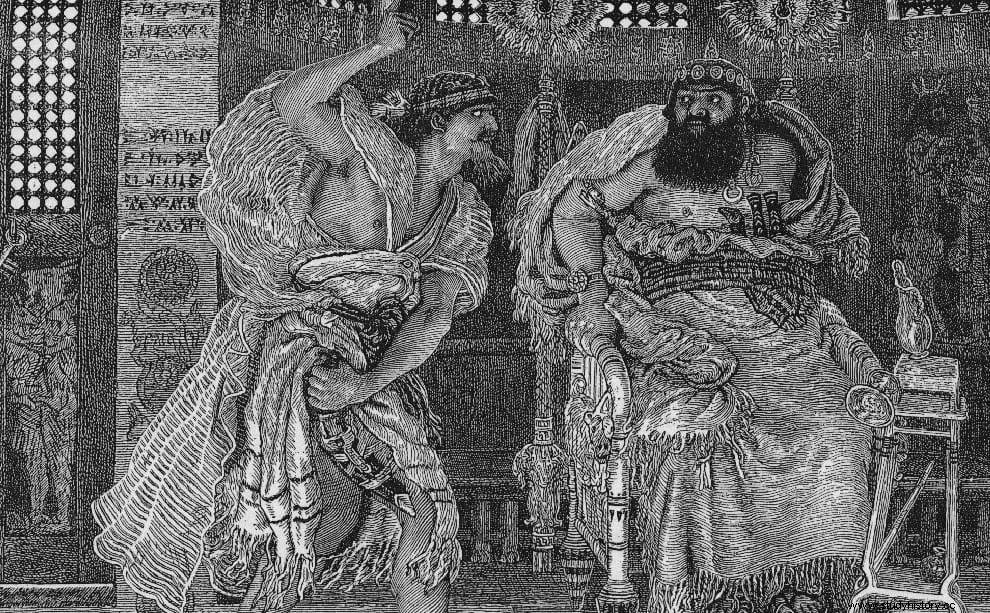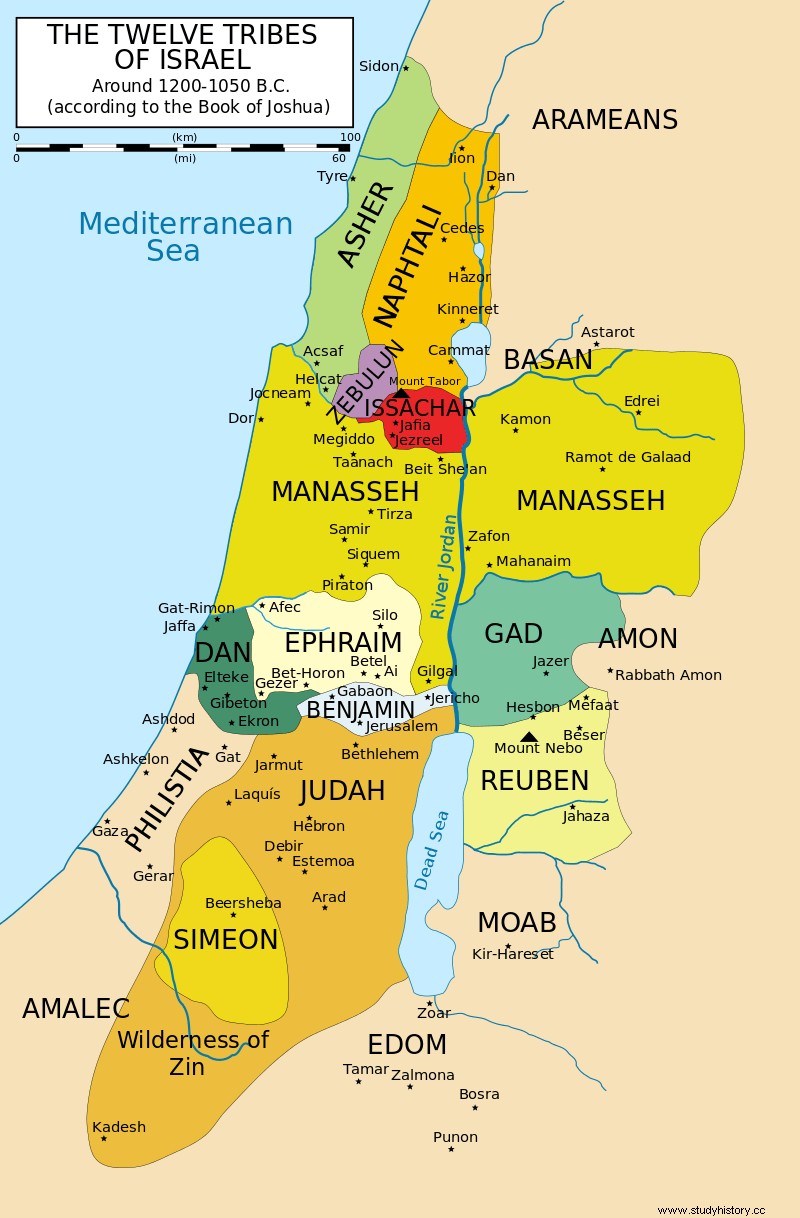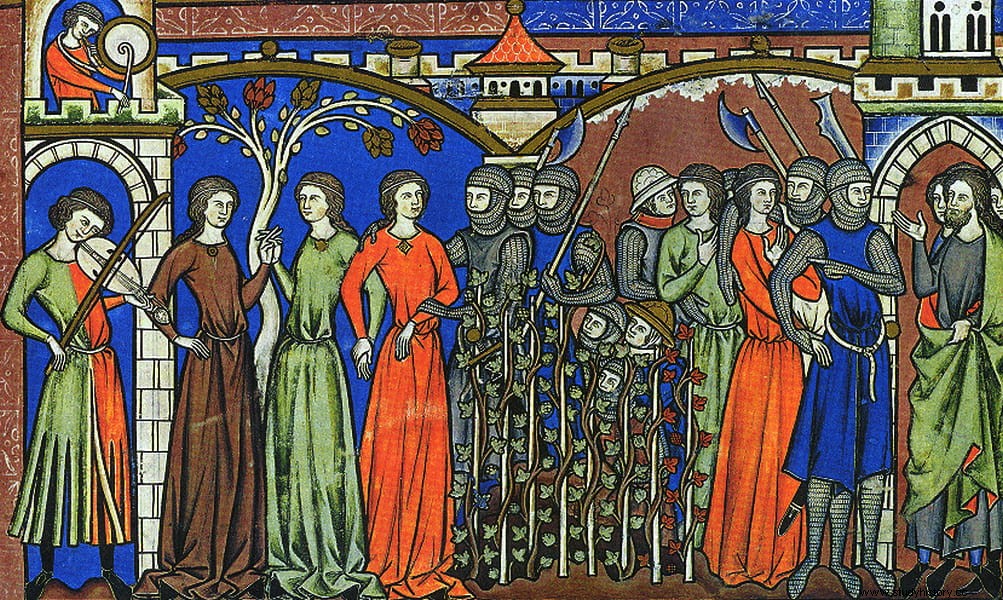Being left-handed is not easy, neither in Antiquity nor today. At all times and in all civilizations there was a bias bias in favor of right-handers. In fact the right it was associated with the good, ceremonies, food, the gods, healing... while the left was for all the bad things, such as curses, insults, damage, etc.
Even someone as rational as Plato frequently associates the right with good and the left with evil, and before him Pythagoras listed ten basic principles as pairs of opposites:on the right were masculinity, light, goodness... and on the left femininity, darkness, evil, among others.
Mentions of left-handed warriors are found in multiple ancient texts. As for example in the Iliad (XXI, 164-168), where we have the example of Asteropeus, who throws Achilles two spears at the same time, one with each hand. Asteropeus was an ambidextrous Paeonian hero descended from the river-god Axio, whom Achilles finally manages to kill.

However, being left-handed had a great advantage in close combat. Right-handed enemies generally expected to face an equally right-handed opponent, so left-handers had the element of surprise in the first place. Second, lefties used to train themselves to fight righties, while righties had to adapt to the situation on the fly.
An example of this taken to the limit is, for example, the purposeful modification of architectural elements, to favor left-handers. Perhaps one of the best known are the spiral stairs of Lincoln Cathedral in the United Kingdom, arranged in the opposite direction to the usual. Thus, right-handed attackers would find it impossible to swing their swords effectively during the ascent, while left-handed defenders would have greater freedom of movement. Not surprisingly, the defense of the cathedral was entrusted to a Scottish clan made up exclusively of left-handed men.

Going back to antiquity, precisely in the Bible left-handed people are mentioned on three occasions, and curiously in all cases associated with the tribe of Benjamin. The first is the assassination of the Moabite king Eglon by a lefty (Judges 3:12-30), Ehud, the second judge of Israel. The second tells of 700 Benjamites using the sling with their left hands, emphasizing its deadly accuracy (Judges 20:16). And the third mentions two dozen ambidextrous Benjamite warriors who came to support David at Hebron (Chronicles 12:2).
In 2013 researchers Boyd Seevers and Joanna Klein studied whether this characteristic of the Benjamites, being left-handed or ambidextrous, was natural or learned. They concluded that there should be a bit of both.
The Benjamites must have been genetically prone to such a characteristic, but also within their tribe it had to be encouraged through training, in order to provide them with a strategic advantage in combat.
According to Seevers and Klein, the fact that the biblical chroniclers recorded such uniqueness of the Benjamites could be due to how curious and unusual it must have seemed to them that a whole tribe of left-handed people called themselves Benjamin , which literally means right-handed children .

Even with that combat advantage, the tribe of Benjamin was virtually annihilated by the other Israelite tribes, including children and women, at the Battle of Gibeah (sometime between 1200 and 1000 BC). Only about 600 men survived, remaining hidden in a cave for four months.
At the end of that time the tribes, fearing that the Benjamin would disappear forever, allowed them to take new wives among their women. Since none of them wanted to marry a Benjamite, they made a controversial decision. They eliminated about 400 men from the tribe of Machir, who had shown no sorrow for the fate of the Benjamites, and handed over their widows to them. In this way the tribe of Benjamin could continue to exist, although since then it became the smallest of all (hence the modern association of the term with small).
Over time, and after the dissolution of the Kingdom of Israel in 930 BC, the tribe of Benjamin joined the tribe of Judah to form a new kingdom. They survived the destruction of Israel by the Assyrians and were deported to Babylon. Once the captivity ended, the distinction between the tribes of Benjamin and Judah was lost in favor of a new identity:Israel.
